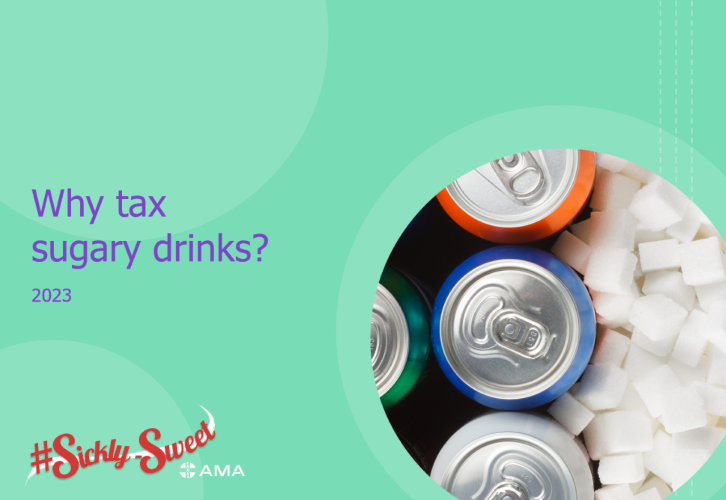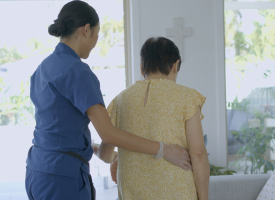Why tax sugary drinks?
As dozens more governments around the world adopt a sugar tax and new evidence shows this tax can improve dental caries, the Australian Medical Association has renewed its call for Australia to implement a tax on sugar sweetened beverages as part of its #SicklySweet campaign.

Sugar-sweetened beverages contain large amounts of free sugars — 8–12 teaspoons (33–50 grams) of sugar in the average 375 mL can of soft drink. This is more than the daily recommended amount of sugar in just one drink, delivering a high number of liquid calories but providing almost no nutritional benefit. This category of beverage typically includes carbonated and non-carbonated fruit, dairy/milk, sport, energy and cordial drinks containing free sugars, and excludes alcoholic and artificially-sweetened (diet) drinks.
In 2019–20, Australians consumed an average of 70 grams of free sugar a day, with over a quarter (18 grams) of this attributed to sugar-sweetened beverages. The Australian Medical Association (AMA) estimates that every year, Australians consume more than 2.4 billion litres of sugar-sweetened beverages, which is enough to fill 960 Olympic sized swimming pools. Research shows that 36 per cent of adults and 41 per cent of children consume sugar-sweetened beverages at least weekly, with nine per cent of adults and seven per cent of children consuming them daily. In Australia, young males are the biggest consumers.
Frequent consumption of sugary drinks is associated with a range of health problems, such as poor dental health and obesity — a major risk factor for chronic diseases like type 2 diabetes, heart disease, stroke, and cancer. There is also a strong association between consumption of sugar-sweetened beverages and chronic diseases, in particular type 2 diabetes and heart disease, independent of weight gain and obesity. These conditions, many of which are preventable, have a significant impact on our healthcare system and broader economy.
To help address this issue, the AMA is calling for a tax on a subset of sugar-sweetened beverages — all non-alcoholic drinks containing free sugars, excluding 100 per cent fruit juice, milk-based and cordial drinks. The focus is drinks that provide no nutritional benefit.



